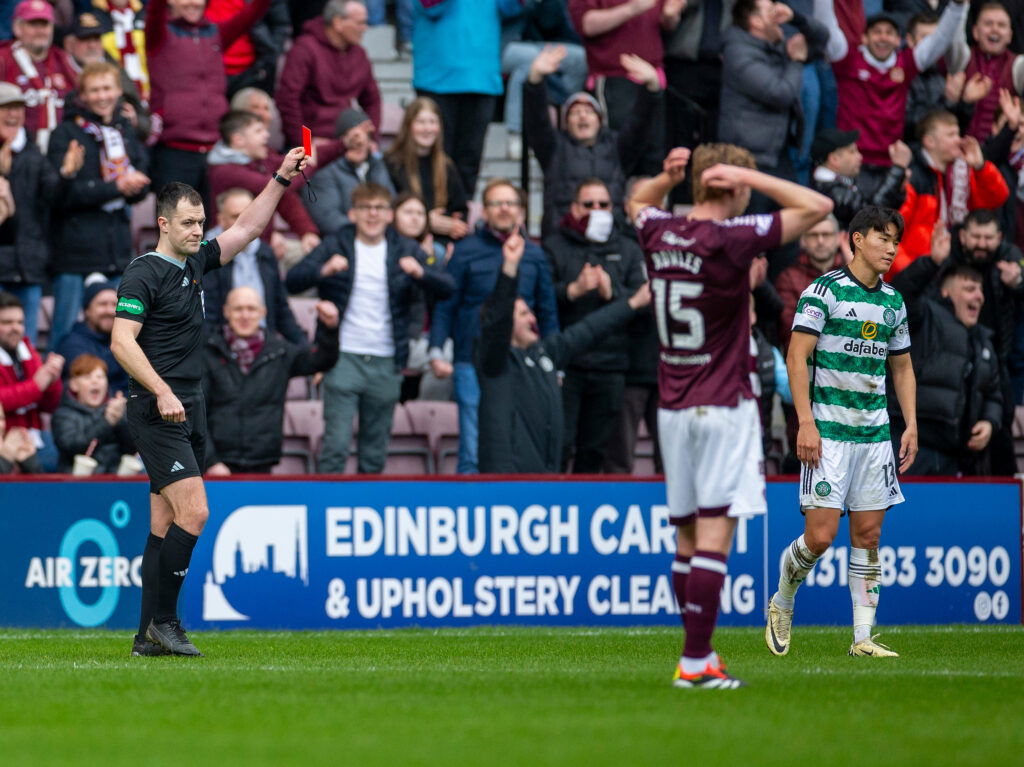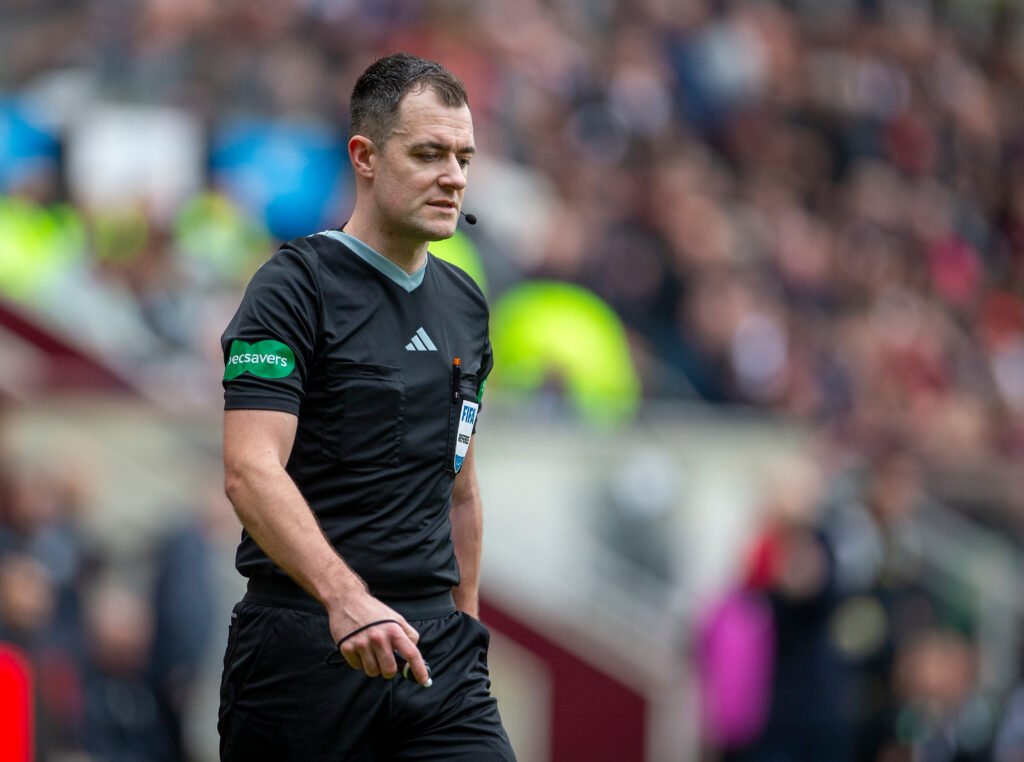Celtic’s Alistair Johnston has stirred the pot regarding the use of VAR in Scottish football, specifically criticising the application of slow-motion replays for tackles.
This comes after his teammate, Yang Hyun-jun, was controversially sent off last Sunday. Initially booked for a foul during their match against Hearts, Yang’s yellow card was upgraded to red following a VAR review, a decision upheld by the SFA after an appeal.
Johnston didn’t mince words about his take on VAR, suggesting it might be more a hindrance than a help in its current state. “In Scotland I think if there wasn’t VAR we would actually be better off in some instances,” he stated. Highlighting the inherent issue with slow-motion analysis, Johnston explained, “I just think as a defender that whenever you freeze frame anything, whenever you go into slow motion, every tackle can look like a red card tackle. It takes a lot of the context out of it.”

He proposed a straightforward fix speaking to the Herald: “My solution to it would be to make it as simple as possible, would be to say you are not allowed to make slo-mos of any tackle. You have to watch it in real time.”
Johnston’s frustration stems from the distortion he believes slow-motion causes, making situations appear more severe than they are. “That was my biggest gripe with the red card to Yang – the ref saw it in live time and didn’t really think there was any intent. And there was no intent. Of course, his foot was high and I agree that when you put your foot high you run the risk. But I think everyone knew there was no intention there. He didn’t really catch him at all. I think then when you slow it down and freeze it then things can get taken out of context.”
Reflecting on the consensus at the time of the incident, Johnston added, “On the pitch the ref thought it was a yellow, everyone on the pitch thought it was a yellow so move on with it. But then you go to VAR and from there anything can happen.”

Despite his criticisms, the Canadian acknowledged the potential of VAR, drawing from his positive experiences during the World Cup with Canada. “I think the decisions are just made at a quicker rate at the World Cup,” he observed, suggesting that a quicker, more decisive approach could benefit the Scottish system. He continued, “At that level they have got maybe a better understanding. There, an error that is worthy of going over to VAR is worthy.”
The Celtic defender believes the issue lies in the time taken to review plays, which often suggests a lack of clear error. “I find that sometimes when an error is taking two or three minutes to go over probably it is not such a glaring error that it needs to be called over. That is my thing.”

He remains optimistic about VAR’s potential, acknowledging its growing pains but also its ability to accurately adjudicate clear-cut situations. “As a defender I find offsides, things like that which are black and white very helpful. But when you are freeze framing every tackle things can be taken out of context and it can be frustrating.”
An incredible amount of common sense spoken by our Canadian right back, but unfortunately, common sense is a rare commodity in Scottish football.
Celtic go into the Livingston game on Sunday looking to make it to the semi-final of the Scottish cup. Will VAR play its part in proceedings?


